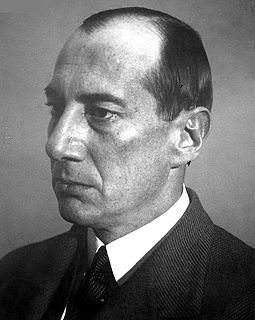The Runciman Report was issued at the conclusion of Lord Runciman's Mission to Czechoslovakia in September 1938. [1] The purpose of the Mission was to mediate in a dispute between the Government of Czechoslovakia and the Sudeten German Party (SdP), representing German separatists within Czechoslovakia (in the so-called "Sudetenland"), which was threatening to plunge Europe into war.

Walter Runciman, 1st Viscount Runciman of Doxford, was a prominent Liberal and later National Liberal politician in the United Kingdom between the 1900s and 1930s.
The Runciman Mission to Czechoslovakia was a British Government initiative aimed at resolving an international crisis threatening to lead to war in Europe in the summer of 1938. The Mission, headed by a former British cabinet minister Lord Runciman, was sent to mediate in a dispute between the Government of Czechoslovakia and the Sudeten German Party (SdP), representing the radicalised ethnic German minority within the country. The British mediators were active on the ground in Czechoslovakia during the late summer, issuing their report shortly before the Munich Conference in September.

Czechoslovakia, or Czecho-Slovakia, was a sovereign state in Central Europe that existed from October 1918, when it declared its independence from the Austro-Hungarian Empire, until its peaceful dissolution into the Czech Republic and Slovakia on 1 January 1993.
The report, published in the form of letters addressed to the British prime minister, Neville Chamberlain and the Czechoslovak President, Edvard Beneš, on 21 September 1938, recommended the cession of the territory concerned to Nazi Germany, thus paving the way for the Munich Agreement of 30 September 1938.

Arthur Neville Chamberlain was a British Conservative Party statesman who served as Prime Minister of the United Kingdom from May 1937 to May 1940. Chamberlain is best known for his foreign policy of appeasement, and in particular for his signing of the Munich Agreement in 1938, conceding the German-speaking Sudetenland region of Czechoslovakia to Germany. When Adolf Hitler invaded Poland, the UK declared war on Germany on 3 September 1939, and Chamberlain led Britain through the first eight months of the Second World War.

Edvard Beneš, sometimes anglicised to Edward Benesh, was a Czech politician and statesman who was President of Czechoslovakia from 1935 to 1938 and again from 1945 to 1948. He also led the Czechoslovak government-in-exile 1939 to 1945, during World War II. As President, Beneš faced two major crises which both resulted in his resignation.

Nazi Germany is the common English name for Germany between 1933 and 1945, when Adolf Hitler and his Nazi Party (NSDAP) controlled the country through a dictatorship. Under Hitler's rule, Germany was transformed into a totalitarian state that controlled nearly all aspects of life via the Gleichschaltung legal process. The official name of the state was Deutsches Reich until 1943 and Großdeutsches Reich from 1943 to 1945. Nazi Germany is also known as the Third Reich, meaning "Third Realm" or "Third Empire", the first two being the Holy Roman Empire (800–1806) and the German Empire (1871–1918). The Nazi regime ended after the Allies defeated Germany in May 1945, ending World War II in Europe.
Evidence suggests that a section of the report was redrafted at a late stage, probably by Frank Ashton-Gwatkin, the Chief of Staff of the Mission and a permanent official in the British Foreign Office, in order to bring the recommendations fully into line with British policy. [2] [3]
Frank Trelawny Arthur Ashton-Gwatkin was a British diplomat and Foreign Office official. He was a significant influence on the British foreign policy in the Far East in the early 20th century. He also published a number of novels and other works under the pseudonym John Paris.

The Foreign and Commonwealth Office (FCO), commonly called the Foreign Office, is a department of the Government of the United Kingdom. It is responsible for protecting and promoting British interests worldwide. It was created in 1968 by merging the Foreign Office and the Commonwealth Office.








